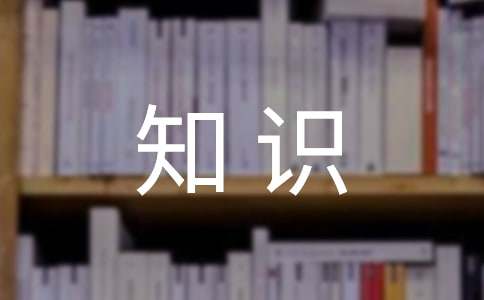- 相關(guān)推薦
構(gòu)詞法的基本知識(shí)
構(gòu)詞法的基本知識(shí)

1)派生法
1.常用前綴
前綴意義例詞
un-不unknown未知的unhappy不高興的
dis-不,否定dislike不喜歡discover發(fā)現(xiàn)
re-再,重復(fù)retell復(fù)述
mid-中mid-night半夜mid-term期中
mis-誤會(huì)misunderstand誤會(huì)
bi-雙bicycle自行車
il-不,非illegal非法的
in-不,非informal非正式的
im-不,非impossible不可能的
ir-不,非irregular不規(guī)則的
inter-間,相互international國(guó)際的
tele-遠(yuǎn)telephone電話
2.常用后綴
后綴意義例詞
-er動(dòng)作者,人teacher教師
-or動(dòng)作者,人visitor參觀
-ian人musician音樂家
-ess女性actress女演員
-ese人,語言Chinese中國(guó)人,漢語
-ese(地方、人)的Japanese日本(人)的
-hood身份、狀態(tài)childhood童年
-ity(抽象名詞)ability能力
-th過程,結(jié)果death死亡
-ness狀態(tài)、性質(zhì)happiness快樂
-ship狀態(tài)、身份friendship友誼
-tion動(dòng)作、狀態(tài)action行為
-ure動(dòng)作、結(jié)果pleasure快樂
-an(地方、人)的Canadian加拿大人(的)
-ed有,像talented有才華的
-en…的wooden木制的
-ern(表示方向)southern南方的
-ful充滿meaningful有意義的
-less不、無useless沒用的
-ly…地carefully細(xì)心地
-en使…變得weaken削弱、(使)變?nèi)?/p>
-fy使…化satisfy(使)滿意
-ize,-ise使…化modernize(使)現(xiàn)代化
-teen十幾thirteen十三
-ty幾十thirty三十
-th第…ninth第九
(二)轉(zhuǎn)化法
轉(zhuǎn)化法是指基本不改變單詞的詞形,而將其轉(zhuǎn)用為另一詞類詞。單詞轉(zhuǎn)化后的意義常與轉(zhuǎn)化前的意義有密切的聯(lián)系。
May I have a look?我可以看一看嗎?(動(dòng)詞轉(zhuǎn)化為名詞)
Let him have a try.讓他試試。(動(dòng)詞轉(zhuǎn)化為名詞)
Can we book the tickets ahead?我們能提前定票嗎?(名詞轉(zhuǎn)化為動(dòng)詞)
The hall can seat thousands of people.大廳能坐數(shù)千人。(名詞轉(zhuǎn)化為動(dòng)詞)
She had to busy herself with housework.她不得不忙于家務(wù)活。(形容詞轉(zhuǎn)化成動(dòng)詞)
You’d better empty the bottle first.你最好把瓶子先倒空。(名詞轉(zhuǎn)化為動(dòng)詞)
It’s necessary to know the difference between right and wrong.
有必要知道對(duì)錯(cuò)之間的區(qū)別。(形容詞轉(zhuǎn)化成名詞)
They often help the poor.
他們經(jīng)常幫助窮人。(形容詞轉(zhuǎn)化成名詞)
We began to drive north.
我們開始向北行駛。(名詞轉(zhuǎn)化成副詞)
There were lots of ups and downs in his life.
他的一生中有許多的起起落落。(副詞轉(zhuǎn)化成名詞)
(三)合成法
把兩個(gè)或兩個(gè)以上的單詞合成為一個(gè)單詞,這種構(gòu)詞法成為合成法。
1.合成形容詞
He is a white-collar clerk.他是一名白領(lǐng)職員。
He is an open-minded leader.他是一名思想開明的領(lǐng)導(dǎo)。
What a kind-hearted girl!多幺好心的女孩!588.es
This is a good-looking a table.這是一張好看的桌子。
Taking a taxi is time-saving.乘坐出租車很省時(shí)。
He has heard the heart-breaking news.他已經(jīng)聽說了這個(gè)令人心碎的消息。
It’s dangerous to walk on this ice-covered road.
行走在這條被冰覆蓋的路上是很危險(xiǎn)的。
How much is the hand-made model?那個(gè)手工制作的模型多少錢?
Chinese people are hard-working.中國(guó)人民是勤勞的。
2.合成名詞
This is our classroom.這是我們的教室。
Do you often play basketball?你經(jīng)常打籃球嗎?
Her handwriting is much better than mine.她的書法比我的要好得多。
The waiting-room is quite crowded.候車室里相當(dāng)擁擠。
The water in the swimming-pool is clear,like a blue mirror.
游泳池里的水很清澈,像一面鏡子。
Please look at the blackboard.請(qǐng)看黑板。
He plants lots of flowers in his green-house.他在溫室里種了許多花。
They are playing games on the playground.他們?cè)诓賵?chǎng)上做游戲。
The get-together will begin at 8:00 pm.聯(lián)歡會(huì)將于晚上八點(diǎn)開始。
He is my brother-in-law.他是我的姐夫。
I’m not a good-for-nothing.我并不是一個(gè)無用之人。
The plant is called forget-me-not.這種植物叫含羞草。
3.合成動(dòng)詞
Please air-dry the paper.請(qǐng)將紙風(fēng)干。
He is undergoing great suffering.他正在遭受巨大的痛楚.。
It’s hard to white-wash the huge wall.粉刷這面大墻是很難的。
The man was blacklisted.這個(gè)人被列入了黑名單。
4.合成副詞
She lives downstairs.她住在樓下。
If you look eastwards,you can see the sea.如果你往東看,能夠看到大海。
今天有關(guān)快速記憶英語單詞的三大技巧的相關(guān)內(nèi)容就介紹到這里了。
【構(gòu)詞法的基本知識(shí)】相關(guān)文章:
花辯的基本知識(shí)-辯論賽03-06